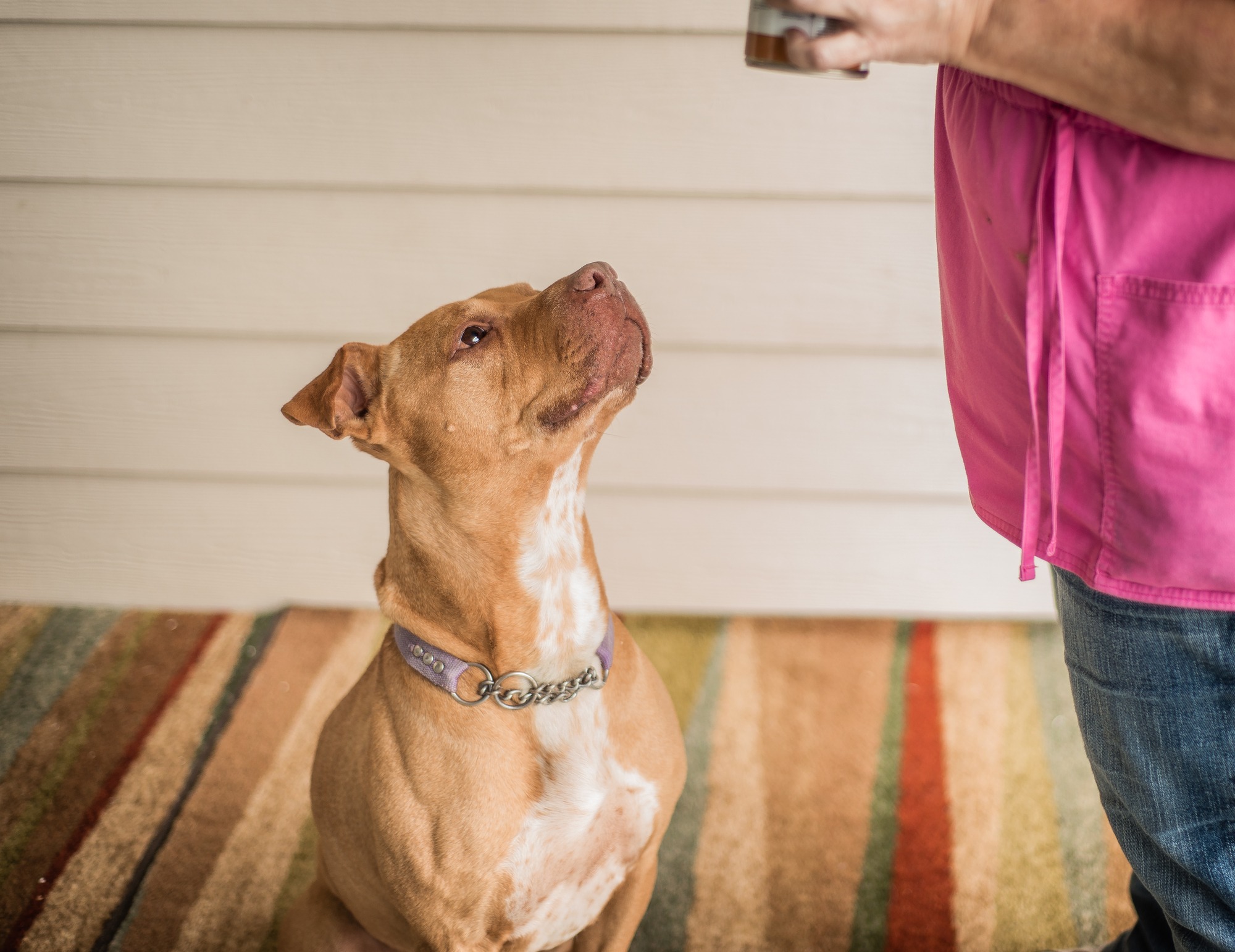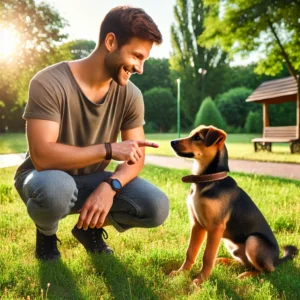Adopting a dog can be one of the most rewarding experiences for you, your family and of course, for the dog. You gain a loving companion which will brighten your day and you provide a home to a pooch in need.
When bringing any new pet into your home it’s important to plan ahead in order to provide the attention and needed training for your new family member to adjust and thrive. Even more so for an adopted dog that has an unknown past which can pose a greater challenge when in teaching new skills. With patience and effective training, you can help your adopted dog adjust to their new life. We want to help, so here are some tips to help you get started.
Bringing your adopted dog home for the first time
Even before you welcome an adopted dog into your family, you can take steps to prepare your home. You may have no idea what their behavior will be inside a house, but you can minimize potential problems by keeping clothes and personal items off the floor and out of reach. Some rescue dogs will never have lived in a home before, and it can take time for them to learn the rules associated with this new environment. When bringing them home for the first time make sure to isolate them in a safe and quiet part of the house away from other pets and slowly introduce them over a period of days or weeks.
Expect an adjustment period
When bringing your newly adopted dog home for the first time don’t expect too much at the start. It may take time for your new dog to get comfortable, adjust and relax. To help this process, provide a comfortable bed in a safe calm location where they can feel safe. Make sure to provide plenty of toys. Maintaining the stable environment and keeping to a routine will help keep stress levels as low as possible. This includes keeping walk times somewhat consistent at the same time every day and keeping things inside the house in a reliable spot like leaving the food bowl and bedding in the same place.
Use positive reinforcement when training an adopted dog
If you have no idea what your dog’s previous life was like or if they have been mistreated in the past, it’s especially important to do reward-based training and never use punishment. If your dog misbehaves, don’t yell scold or hit them as they might have a trauma response like shutting down and your lesson will not get through. Instead make sure to praise when they do the right thing and give plenty of treats.
High value dog treat training
Consider using a scaled reward system where certain treats are high value rewards that your dog will love the most and used for when they accomplish bigger training tasks. There’s a difference between a regular dry baked dog treat and a textured one that has a stronger smell associated with a high level reward will make your dog start drooling and therefore be more motivated. High level rewards like these can include pieces of hotdog, cooked chicken, pieces of cheese, sardines or other meaty smelly and fatty morsels that your dog might love. Feel free to be creative but remember that these high value rewards can be a powerful tool when training and should be used at the right times when they are most needed.
Make a Training Plan
It’s good to start off assuming that your adopted dog hasn’t had any formal training so make a plan for how they will learn. Important things to remember when training a dog includes making sure they are getting a consistent message from every member of the family. It will be difficult for a dog to understand a concept if someone else is teaching something differently. Don’t move through training too quickly. Give your dog training that focuses on a few specific skills at a time so they can master one thing and build confidence without overloading the poor pooch with more information than they can handle.
Keep your training sessions with your dog short so they don’t lose interest. The most effective training will be shorter periods of time consistently spread out throughout the day and week to keep it exciting. Always end your training sessions with something fun so your dog builds a positive association with it and will be excited to keep learning. Ending the lesson with a game or a high value treat is always a good idea!
Socialization Training
One focus you to have with training your new dog is on getting them socialized: being comfortable around new people and other dogs in public. This can be challenging especially if you don’t know your dog’s history. Your new dog may be living with a lot of emotional baggage making them shy and anxious or reactive in busy social settings. An older dog that hasn’t been properly socialized when young might be especially tricky to train so be very patient and willing to adopt new training methods if what you’re doing isn’t working.
Hire a professional trainer
It can be very satisfying to accomplish training your adopted dog on your own at home and with a lot of patience and persistence it is an attainable goal for people who are dedicated and have the time. If you are struggling to make training a priority for your dog or they have some more serious behavioral issues, it’s always a good idea to consult with a trainer and think about scheduling some sessions with the professionals. The expert trainers at My Dog Listens are always here to help you with your dog training needs with a variety of programs and classes to fit your budget and your schedule.








